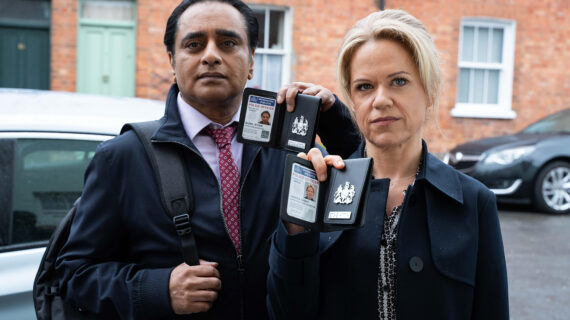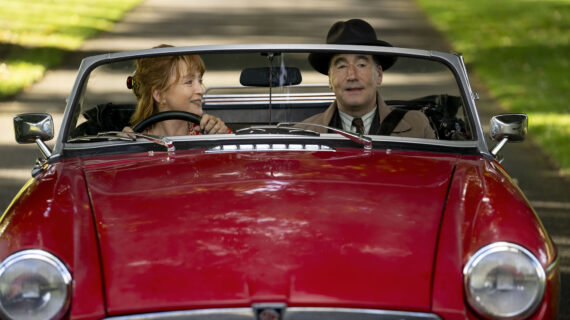Frederica Freyberg:
We stay in Milwaukee and turn to a new county effort to rethink juvenile justice. This month, the Milwaukee County Executive proposed a nearly $42 million makeover of his county’s juvenile detention center to house youth offenders who are currently housed at the state juvenile prisons. But the proposal goes beyond bricks and mortar to include care and programming aimed at reducing recidivism and returning rehabilitated youth to their communities with skills they need to succeed. The proposal is designed to build on what the county says is its approach to the youth justice system that promotes racial and economic equity. Milwaukee County Supervisor Marcelia Nicholson is among board members who this spring, signed a resolution declaring racism a public health crisis. She weighs in on the new juvenile justice plan with us tonight. Thank you for being here.
Marcelia Nicholson:
Thank you for having me, Frederica.
Frederica Freyberg:
So what do you think of Milwaukee County executive’s submission for this nearly $42 million residential care center for youth offenders?
Marcelia Nicholson:
Well, Frederica, I wholeheartedly support this measure. A single institution is a one-size-fits-all model that does not work for the children of Milwaukee County. I think it’s important that we partner with the state and agree to operate local facilities while they give us the freedom to implement local solutions. We have already beat the state at reforming criminal justice practices for youth. And since 2011, we’ve looked beyond detention and instead looked to develop a continuum of services for youth and family so they no longer meet the system. They can, in fact, leave the system and reengage with their peers.
Frederica Freyberg:
So that said, juvenile inmates would be transferred to the Milwaukee County facility from Lincoln Hills and Copper Lake Detention Centers and the new location, again, would focus on treatment on reengagement. How would this be different from current practice at the youth prisons?
Marcelia Nicholson:
Absolutely. So we no longer want to handcuff our children to a system that doesn’t work for them. Instead, we want to use evidence-based solutions to help our youth. That means providing greenspaces so that they can reconnect with nature. It means providing a larger staff-to-child ratio so none of our children fall through the cracks. It means implementing education, treatment and programming to get at the root of why our children first met the system and what they need to make sure that they don’t reoffend.
Frederica Freyberg:
What has been the reaction in Milwaukee to this proposal on the part of the county?
Marcelia Nicholson:
Well, to our proposal around youth justice facilities, this is been a lot of support. We are already operating many youth justice facilities and we’re utilizing this modern approach. So rather than build a new facility, we are renovating, upgrading what we’re already doing and building upon the successes that we already have.
Frederica Freyberg:
How does this proposal dovetail with the Milwaukee County board’s resolution declaring racism a public health crisis?
Marcelia Nicholson:
Frederica if I could have a moment to answer your question, I need to first explain what institutional racism is. Many people see it as a few bad actors. Bad apples, we like to call them. But we need to look at institutional racism as a rotting apple tree whose roots are permeating the system. Systems like our courts, our schools, the police department. As an example, a black person and a white person can commit the same crime. Let’s use drug abuse as an example. The black person is already more likely to be arrested because the police are already in their communities at a disproportionate rate. If they are both arrested, the black individual may be more likely to sit in jail because he can’t meet cash bail. Or the white individual may be directed to drug court, where he’ll receive treatment instead of incarceration. And if they’re both sentenced to jail, data shows that that black individual will receive a 20% harsher sentence, already creating biases at every corner. So from the moment of arrest to the time spent in jail and the ability to get out and reenter society, people of color are already at a disadvantage. And that’s institutional racism. That’s the system we’re trying to reform and provide for our children so that they can do better.
Frederica Freyberg:
Now, the new approach in Milwaukee would expand programming that according to County Executive Chris Abele “validates and values each youth’s culture, race and ethnicity.” How important is that in the juvenile justice system in your mind?
Marcelia Nicholson:
Milwaukee County doesn’t aim to provide basic services. We aim to provide extraordinary services that meet the people where they are. Services that create an environment for everyone to thrive and to be successful at life, regardless of race, regardless of zip code. And by affirming our values to address racism, affirming our values to say we care about our children. That alone is the first step in making sure that they know they are well-loved and that they’ll have the tools they need to be successful adults.
Frederica Freyberg:
Great. Supervisor Nicholson, thank you very much for joining us.
Marcelia Nicholson:
Thank you.
Search Episodes
Related Stories from PBS Wisconsin's Blog

Donate to sign up. Activate and sign in to Passport. It's that easy to help PBS Wisconsin serve your community through media that educates, inspires, and entertains.
Make your membership gift today
Only for new users: Activate Passport using your code or email address
Already a member?
Look up my account
Need some help? Go to FAQ or visit PBS Passport Help
Need help accessing PBS Wisconsin anywhere?

Online Access | Platform & Device Access | Cable or Satellite Access | Over-The-Air Access
Visit Access Guide
Need help accessing PBS Wisconsin anywhere?

Visit Our
Live TV Access Guide
Online AccessPlatform & Device Access
Cable or Satellite Access
Over-The-Air Access
Visit Access Guide
 Passport
Passport

















Follow Us